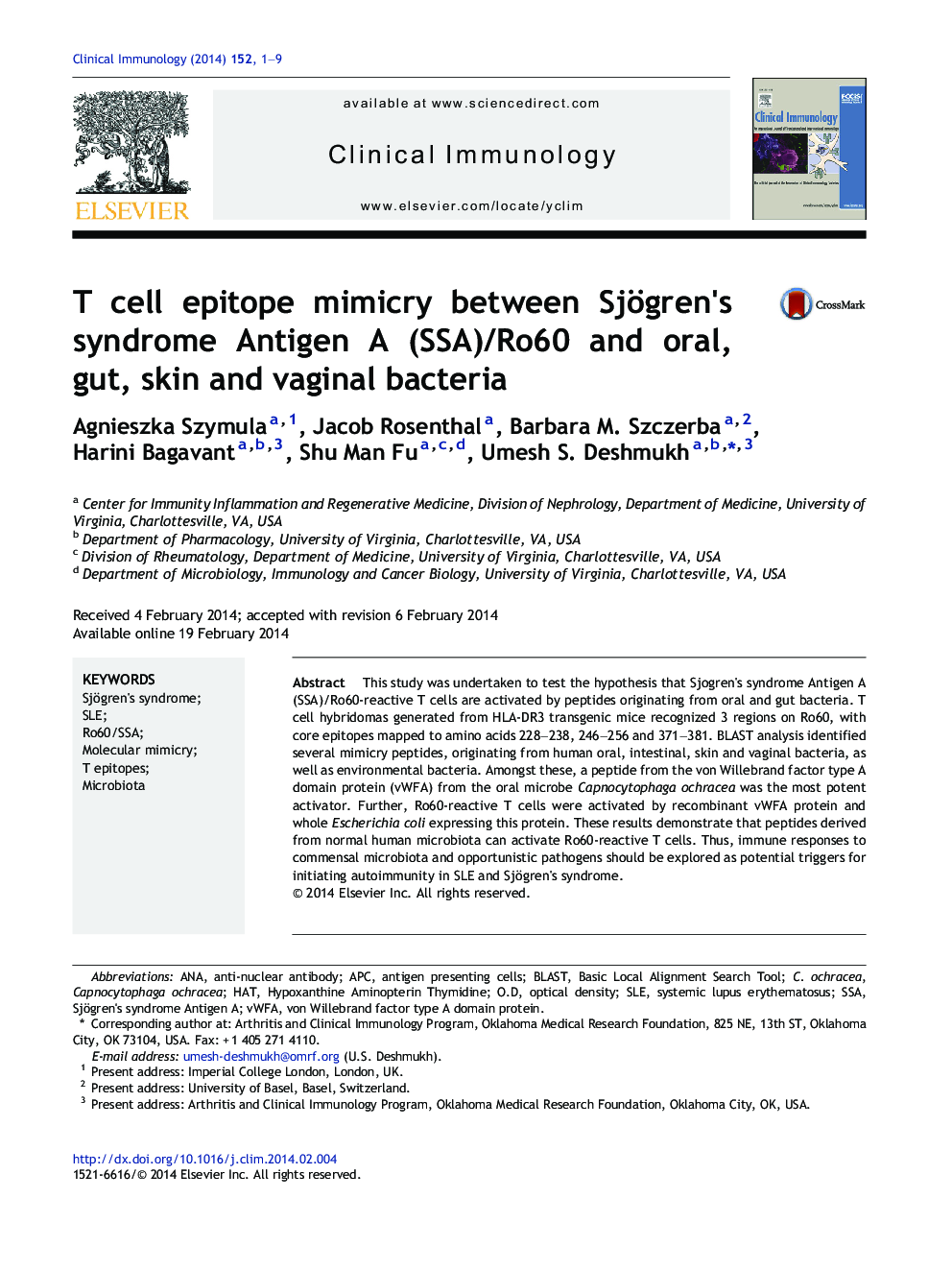| Article ID | Journal | Published Year | Pages | File Type |
|---|---|---|---|---|
| 6087540 | Clinical Immunology | 2014 | 9 Pages |
â¢HLA-DR3 restricted T cell epitopes on Sjogren's syndrome Antigen A (SSA)/Ro60 definedâ¢Peptides originating from multiple bacteria activate Ro60-reactive T cells.â¢vWFA bacterial protein can activate Ro60-reactive T cells.â¢Need to consider immune response to normal microbiota in autoimmunity
This study was undertaken to test the hypothesis that Sjogren's syndrome Antigen A (SSA)/Ro60-reactive T cells are activated by peptides originating from oral and gut bacteria. T cell hybridomas generated from HLA-DR3 transgenic mice recognized 3 regions on Ro60, with core epitopes mapped to amino acids 228-238, 246-256 and 371-381. BLAST analysis identified several mimicry peptides, originating from human oral, intestinal, skin and vaginal bacteria, as well as environmental bacteria. Amongst these, a peptide from the von Willebrand factor type A domain protein (vWFA) from the oral microbe Capnocytophaga ochracea was the most potent activator. Further, Ro60-reactive T cells were activated by recombinant vWFA protein and whole Escherichia coli expressing this protein. These results demonstrate that peptides derived from normal human microbiota can activate Ro60-reactive T cells. Thus, immune responses to commensal microbiota and opportunistic pathogens should be explored as potential triggers for initiating autoimmunity in SLE and Sjögren's syndrome.
